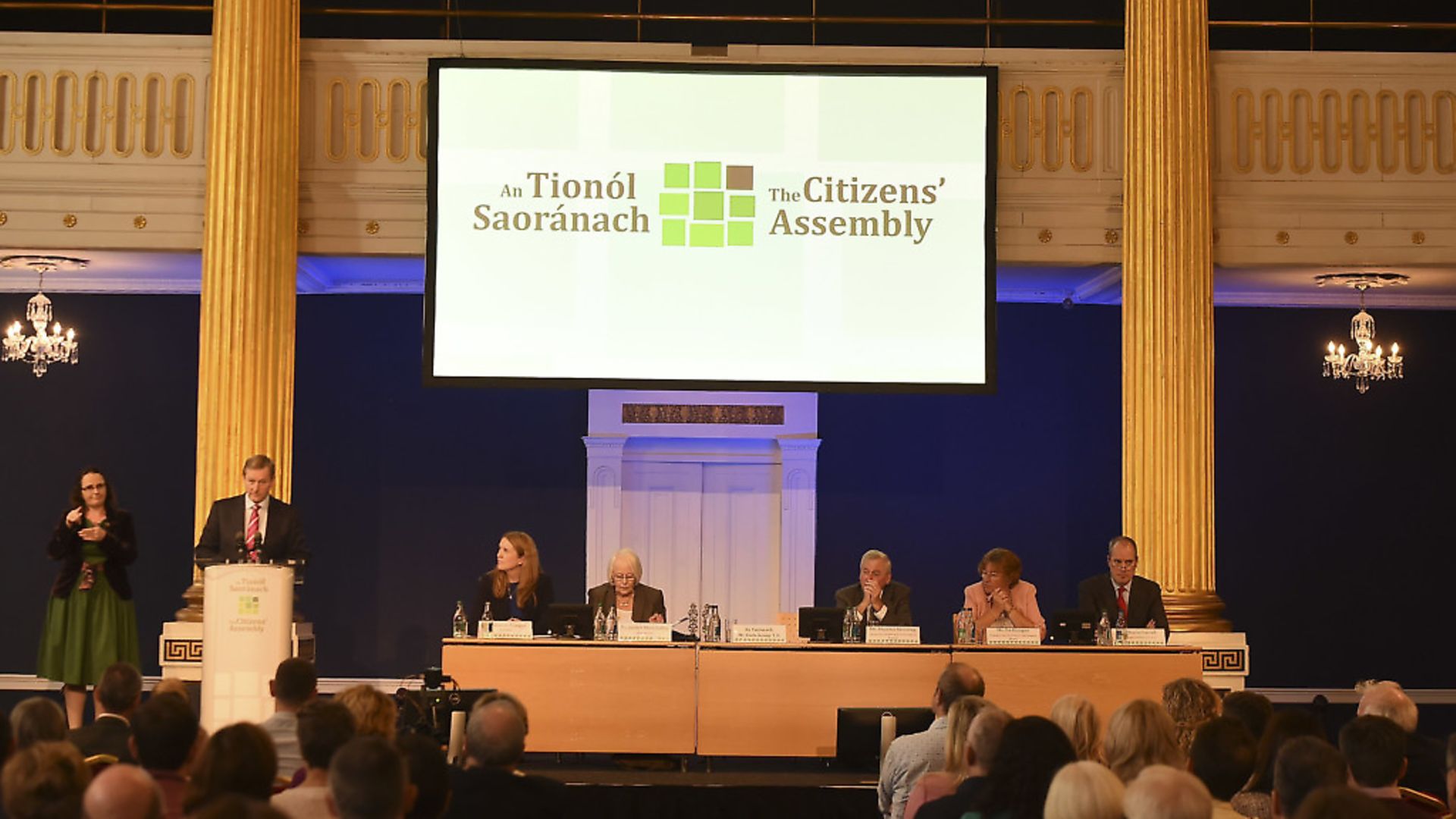
Readers respond to an article suggesting a citizens’ assemblies could help pave the way to rejoining the European Union.
Although I have the greatest respect for AC Grayling and cannot fault his analysis of the present political situation, nevertheless I find his proposed solution an unbelievably rosy response to it.
“Imagine the effect of assemblies set up by citizens themselves around the country… providing opposition to government moves to weaken our democracy…” Yes, I can easily imagine the response of the Boris Johnson government, which would be to barely notice any such manifestations of popular will, brushing them off like so many annoying flies. If the massive demonstrations in favour of a second referendum could not influence policy when we had a minority government, what effect now that it holds a huge majority?
Yes, peoples’ assemblies are indubitably effective, as has been shown in Canada, Iceland and Ireland. Belgium set up an ongoing pilot people’s assembly in 2019 to run alongside its parliamentary system, funded by the EU.
But this is no spontaneous ‘kangaroo’ system. It has been formally organised, and is made up of randomly selected members of the public, who are independently briefed on the issues they are chosen to discuss (topics selected by a separate council, or by a member of parliament, or by a mere 100 signatures from the population).
A similar system, if implemented here, could just possibly influence the Johnson government. But to have any credence, it would need to be accepted and funded in the first place by the government of the day.
Then, yes, it could, indeed, lead to “a change in the political culture and the constitutional arrangements of our country”. But the question is, is it feasible here in the UK, and how could it be set up?
Robert Behrman, Cookham Dean
Very rightly Professor Grayling refers to the “tsunami of falsehood and distortion pouring from social media and the tabloid press” and urges us to adopt citizens’ assemblies to “become the vehicles of genuine democracy”.
Which, if it were to happen and succeed, would be splendid. But there are real difficulties in his idea. One is the massive task falling to someone or other to create and sustain any one such assembly, let alone a country-wide network.
And the unavoidable expense. Who would pay, without vested interest?
And, actually, the questionable legitimacy of such a start-up. He is looking at massive cost in terms of time, administration, hall-hire etc – and with the risk that the venture would not be more credible than our current structures – which are at least properly established, even if unsatisfactory.
(Revd) Paul King, Chesterfield
Let’s keep on fighting. Farage fought for 18 years to leave the EU and he can’t expect us to give up any sooner.
However, many of us are tired from the effort needed for the Remain struggle – we started before the first referendum and are flagging. So we need a steady long-term aim.
For the moment, climate change action and electoral reform are the most urgent issues. Domestically these are closely followed by social care and housing. This doesn’t mean we are giving up on rejoining the EU but that we have to allow the Brexit process to start to give us the ammunition to fight it.
AC Grayling’s idea of citizen assemblies sounds great but will still be seen as whinging by those who just want Brexit to go away. We need to leave enough time before starting something like this.
It would be good to have a psychological weapon in much the same way that “Get Brexit Done” was used to ‘magic away’ any awkward questions. We need to have a slogan for use when negotiations with the EU are not going in the direction promised by Brexiteers and when legislation protecting workers’ rights, fishing rights etc are abandoned.
I have no idea what this phrase would be. I have considered “They Never Promised That” but you have a creative readership – someone will have a really bright idea.
Cathy French
Us Remainers could emerge as the true UK patriots by joining together and calling for HMG to address at a ‘Chinese speed’ the twin challenge of post-Brexit competitiveness and sustaining the UK.
In this context, internal UK infrastructure is key to reassure inward investors and make doing business in the UK easier. All three London airports should be expanded. HS2 needs to go ahead post-haste, with extensions to Glasgow and Edinburgh.
A rail fixed link is necessary to interconnect the UK and enable goods from the island of Ireland and Belfast port to join trains bound for the rest of the UK and continental Europe via the Channel Tunnel.
A bigger defence budget is needed. The more useful the UK is in context of defence and security the more France and Germany will see the UK as a credible partner.
John Barstow
There are many other good and sensible reasons to stay in the EU, but human rights has been my driving force for being a Remainer – yes, you can have your Brexit but don’t touch, remove or harm European fundamental freedoms! Now that is what appears to be happening.
The removal of human rights knows no constituency boundaries; it will affect us all even if you are Remainer, Leaver, Tory, or whatever.
If the government fails to protect UK citizens and weakens their rights then we must consider campaigning for legally binding associate EU membership.
Peter Morris, King’s Lynn
– The fight may have changed but the cause remains. Buy The New European every Thursday to read the full mailbag of letters. To have your say email letters@theneweuropean and join our readers’ group for more debate.










